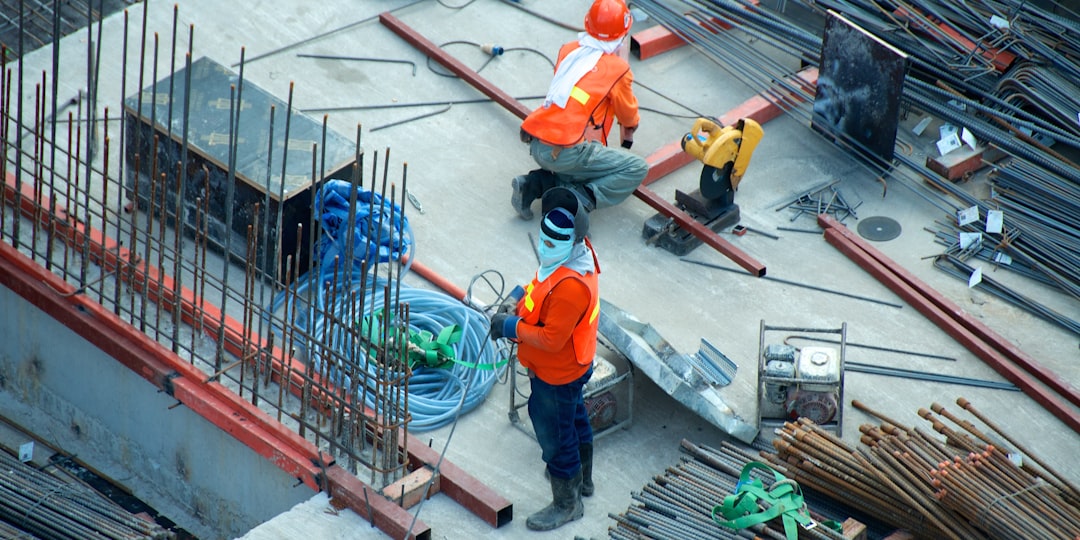

What is in this article?
The VAT reverse charge is the new Government update to try and prevent fraud within the construction industry. The VAT domestic reverse charge came into force on 1 March 2021 after multiple delays
The VAT reverse charge is effectively an extension of the Construction Industry Scheme and only applies to transactions that are reported under CIS and are between VAT-registered contractors and subcontractors.
This means if you are supplying construction services to a VAT registered customer (contractor) you no longer have to account for VAT.
Instead the customer (contractor) will account for that VAT (it will be considered as input tax for them, as if they have made the supply to themselves so they will be accounting for claiming back of VAT and the charging of VAT).
The Reverse Charge applies to both standard and reduced rate VAT supplies.
The payment received from the customer (contractor) will be for the cost of the work plus materials used, net of any CIS deductions for tax and National Insurance but no VAT will be paid on the invoice.
It may seem confusing at first however once you know, you know. To decide whether ‘Normal VAT’ applies or ‘VAT Reverse Charge’ applies the subcontractor must answer these 5 questions:
1. Are any of the supplies made within the scope of CIS?
The main types of work included within the construction industry:
Permanent or temporary building or structure
Plant hire which comes with an operators
Erecting scaffolding
Installation of Solar Panels (unless private)
Civil engineering work such as roads, bridges, airports, railways etc
Site preparation and cleaning inside of buildings after construction work
Demolition and dismantling
Building work including alterations, repairs, extensions and decorating
Installing systems for heating, lighting, power, water and ventilation
Any work forming part of land e.g. walls, roadworks, power lines and waterways etc
If you answer no, then normal VAT rules would apply. Basically if it falls under CIS then the reverse charge will apply for this stage.
2. Is The Supply Standard or Reduced Rate for VAT?
If you answer No, it means the construction work is zero rated (typically a new build) so normal VAT rules will apply. The VAT reverse charge only applies if the construction work is standard or reduced rate (as otherwise there isn’t any vat to reverse charge!)
3. Is Your Customer Register For VAT?
You will need to find out if your customer (contractor) is VAT registered and obtain their VAT number if so. To check to see if a VAT number is valid check here.
If you answer no, then normal reverse charge rules will apply. If you are doing work for a homeowner etc the reverse charge will not apply.
4. Will Your Payment Be Reported Under CIS?
You might need to check with your customer (contractor) to confirm if they are registered for CIS. If you have worked for a contractor before and have received a Statement of Payment & Deduction Statement then you will know they are CIS registered already.
HMRC have also confirmed that you can use the CIS verification system to check if a contractor is registered.
If you answer no, normal VAT rules will apply. The VAT reverse charge only applies for construction work carried between a CIS registered contractor and subcontractor.
5. Customer Confirmed They Are The End User?
The end user is someone who would be the last person to receive the work and they don’t tend to recharge or make onward supplies on the work carried out. Effectively the end user means the supply chain ends with them.
As a result you will need to contact your customer and ask if they are the end user. If you are unsure, HMRC have said that the default position should be to treat the customer as if they are NOT the end user.
If they are the end user, so answering yes, you would apply normal VAT rules as the supply chain will be ending with them and that's how VAT works, it falls upon the last person. The VAT reverse charge rules only apply when there is a continuing supply chain.
To quickly summarise the above, if they are CIS registered, VAT registered, have a taxable supply (20% or 5% VAT rate) and are not the end user then the reverse VAT charge will apply.
If you are a contractor you need to include the VAT on your reverse charge supply from the subcontractor. You then can reclaim this VAT from HMRC on your VAT return.
You will also use the reverse charge for your supplies if your customer is not the end client (so if you are also a subcontractor).
If you customer is the end client then you will charge VAT.
Now if you are a subcontractor and you’re invoicing a customer, you will either charge VAT as normal or use the reverse charge.
If you use the reverse charge you will not include anything on your VAT return for reverse charge supplies.
Your customer (contractor) will need to include the VAT on their next VAT return.
The VAT Reverse Charge for construction industry business will have an affect on other VAT schemes such as the Flat Rate Scheme or Cash Accounting may no longer be beneficial under the new rules.
If you are a smaller subcontractor there could be major issues if potential issues are not mitigated. Some of the potential issues can include:
- The current VAT scheme you are on? Cash Accounting and Flat Rate are unlikely to be favourable under the new rules
- Applying for Gross Status as soon as possible to help with cashflow (receiving higher payments from customers)
- Discussing payment terms with customers
- Delaying capital expenditure until cashflow is managed better
- Changing to monthly VAT returns if business becomes a repayment trader.
If you are a subcontractor and use the reverse charge and don’t charge VAT to your customer.
- Then you will not get the cashflow benefit of the VAT payment from your customer
- But you also don't have to pay VAT over to HMRC.
If your customers are paying quickly and you are submitting your VAT returns quarterly, then you are at a cashflow disadvantage as you used to get paid VAT by your customer and then pay it to HMRC once a quarter but now you need to wait to reclaim your VAT at the end of the VAT quarter.
If you are a subcontractor then this will have a double impact on you if you have CIS Deductions at 20% (net status) and make reverse charge supplies, your cashflow will be impacted by this additional deduction.
To improve your cashflow, an option is to move to monthly VAT returns, as you might find yourself in an unusual position of not having to charge VAT on most of their sales (if you’re a subcontractor). As a result they may become repayment traders and moving to monthly VAT returns will therefore speed up the repayments due from HMRC.
A regularly updated cashflow forecast can help you identify times when cash will be tight and allow you to prepare for any upcoming payments.

The Construction Survival Guide
The only book you need to start up your construction business! The CSG becomes your new handbook offering everything that you need in order to create a successful construction business!
Claim Mine!Claim Mine!Frequently asked questions
This article has been provided for information purposes only. You should consult your own professional advisors for advice directly relating to your business or before taking action in relation to any of the provided content.
PS. Whenever you are ready, here's how to grow your construction business...
1. Join our Facebook Group which built completely for businesses within the construction industry. Real people, real support. - Now also available on LinkedIn.
2. Keep up to date with Construction Insider Providing you with industry insight, tips & tricks and much more to make sure you are ahead of your competitors!
3. When you are ready, Become a Saint Global client, and we will provide you with the highest quality solutions to effectively scale your construction business. Book your meeting here!

Written by the team at:












.jpg)



